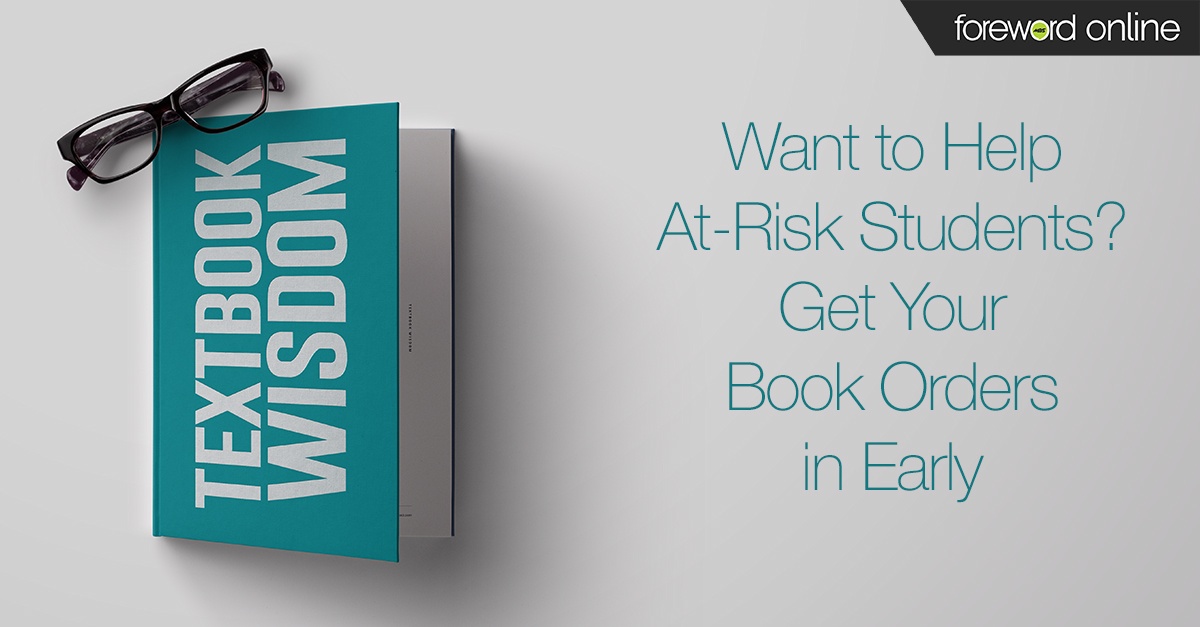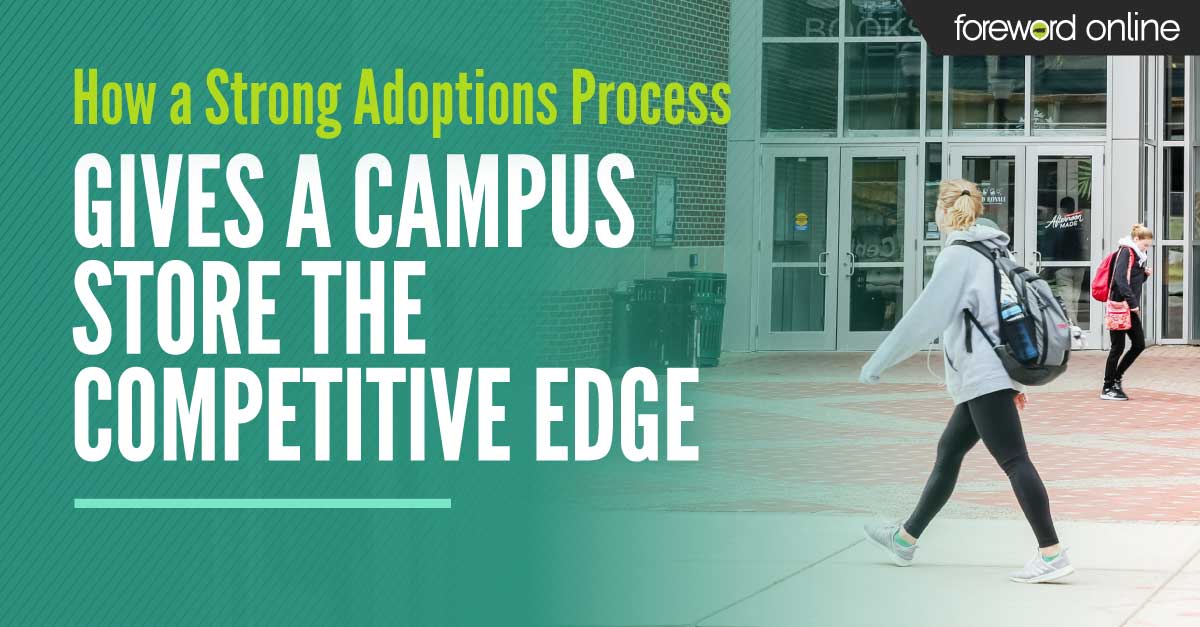Welcome to our third installment of Textbook Wisdom, a Foreword Online series that speaks directly to faculty about course material issues. This week’s article deals with a perennial bookstore concern: Early adoptions. Post it on social media — and email the link to faculty. Bridge the gap between bookstores and educators.
Messages about book orders used to annoy me. Why were the deadlines so early? The semester had only just begun. Students were still juggling classes. Sometimes I was still polishing my syllabus and calendar, fine-tuning based on student response. I often wasn’t sure whether I’d want to reuse the book I’d chosen; I liked to see how it worked before I made a commitment. Meanwhile, the book order requests were frequent, persistent and downright threatening. They seemed totally out of touch with the early-semester stress and chaos that consume a teacher’s life.
Among other things, the question of how to differentiate instruction for students from varying backgrounds kept me focused on classroom issues. I wanted to hold students to high standards, without punishing them for attending a high school with a poor English department. The aspiration made my life more complicated — and it kept me hunting for good course materials that would challenge my students with ample reading and writing experience without alienating those with less knowledge. The latter were often nontraditional students, who could easily find themselves at-risk because they arrived in school with less privilege than others. These were usually my favorites: first generation or older kids who genuinely valued the opportunities college afforded rather than 18-year-olds who regarded higher education as an onerous burden no different from high school.
I had no idea that simply putting my books orders in early was a great way to help those students out. If you were like me, then placing an order meant filling out a form that I then passed onto the department administrator. Her emails started out saying the bookstore needed my orders. Then the tone grew increasingly furious:
“YOU WILL NOT HAVE BOOKS FOR NEXT SEMESTER IF YOUR ORDERS ARE NOT IN BY FRIDAY. THE BOOKSTORE NEEDS THEM NOW!!!”
The threats only made me want to hit delete. They made the bookstore seem like an enemy to education, a bureaucratic nuisance. If someone had explained the reasons behind the urgency, I would have seen the operation in an entirely different light.
Here’s what I didn’t know:
Early book orders save students money — When the bookstore knows how many copies of a particular text are needed, it can order more used copies of that book. Used book quantities are limited. Many students — especially nontraditional students — are forced to make difficult financial choices if they can’t find a used copy of the required text.
Even a small price reduction on books can make a big difference. Students are increasingly food insecure — some lack stable housing. Meanwhile, course material costs have risen 88% in the last ten years, according to the Bureau of Labor Statistics. The price of books can make education costs even more prohibitive to all but the rich.
Early book orders ensure the bookstore has enough copies to go around — Bookstores have to work within very narrow margins when they place orders. Excess copies cost them money they can’t afford to lose in a difficult retail environment.
Early book orders help students make more money when they sell books back — The value of books changes in dependence on the market. When a bookstore knows it will need more copies of a text, it pays more for that book at buyback. The extra $20 or $30 a student makes could help them buy books next term — or it could help them pay rent or get a decent meal.
With that in mind, here’s a little advice for getting your orders in early
- Consider deciding what books you’ll teach for both terms over the summer
- If you know you’re going to reuse a book in the next term, make the book order part of your early-semester paperwork. Just get it over with.
- If you need to evaluate several texts before ordering, get your advance copies before the semester begins. It will be easier to review them when you have fewer distractions anyway.
- If you’re using a new text and are unsure whether you’ll want to reuse it, assign chapters early in the semester and survey students about the book early. Don’t wait until the end of the semester to ask them whether they liked the book.
Yes, following this advice might mean devoting a little more time to prep at the start of the year. But it will benefit your students greatly. Many students drop out of college because the costs are too high. Don’t contribute to the problems that make education inaccessible to those who want it most.




.jpg)

